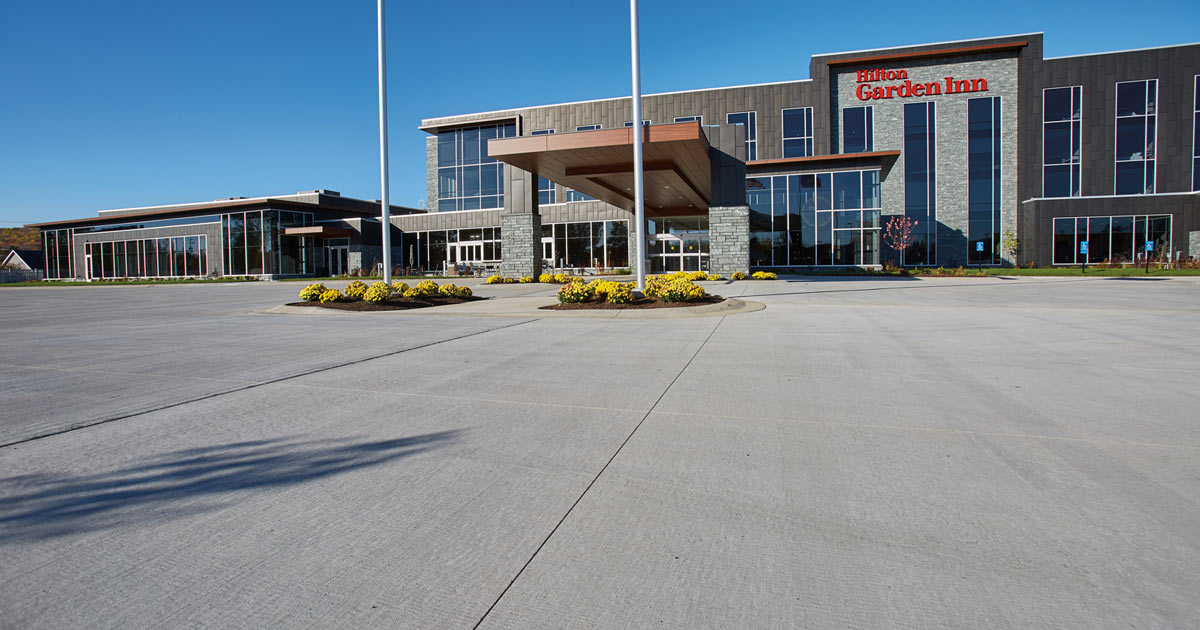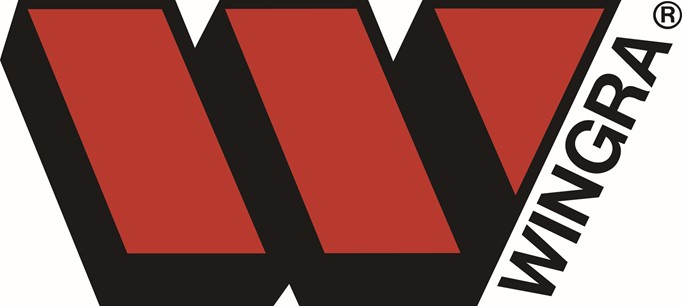Parking Lots
Share Your Concrete Paving Idea!
Your local Wisconsin Ready Mixed Concrete Association producer member has access to pavement analysis tools, powerful, parking lot design and costing software for accurately quantifying the differences between concrete and asphalt pavements. Using American Concrete Institute and Asphalt Institute recommendations, the pavement analysis software compares total ownership costs, giving you the information you need to make sound parking lot pavement selection decisions.
To request a free project review with a qualified pavement analysis professional, please provide the information below, or contact WRMCA at 608.250.6304 or cschwenn@wrmca.com – or your local Wisconsin Ready Mixed Concrete Association producer member.
Contact Us
Concrete Provides Your Best Parking Lot Value
Concrete provides a durable, attractive, and environmentally-friendly paved surface for parking lots. Wisconsin business owners, developers, and facility managers select concrete paving over other parking lot paving material options primarily for its appearance, durability, low maintenance, and low total ownership costs.
Clean, Upscale Appearance
Parking areas can have a dramatic effect – positive or negative – on a visitor’s first impression. Concrete’s clean look and stone-like qualitites creates a sense of lasting quality for customers, tenants and employees. By increasing curb appeal for customers and tenants, concrete parking lots can boost revenues and rental values.
Durable, Long-Term Performance
Concrete provides a longer service life than any other paving material. Concrete parking lots stand up to daily traffic and do not rut or shove, and grow stronger over time.
Low Maintenance Costs
Choosing concrete for parking areas means lower maintenance costs – less sealing, re-striping, resurfacing, and loss of business during maintenance operations than competing pavement material options.
Lowest Total Ownership Costs
Even in this era of high oil prices, concrete paving will not necessarily provide the cheapest paving material option on an initital bid cost basis. But factoring in intitial placement costs, annual operating expenses, and ongoing maintenance and repair costs, concrete costs less over your parking lot’s useful service life.
Other Concrete Benefits
Concrete’s higher reflectance properties keep pavement surfaces cooler and help minimize the urban heat island effect, reducing energy costs for cooling surrounding structures.
Concrete’s higher (brighter) reflectance can lower infrastructure and ongoing lighting costs, saving energy while boosting safety for vehicles and pedestrians. Concrete parking areas require fewer lighting fixtures (as much as 30% reduction in parking lot lighting requirements) than other paving material surfaces, resulting in less energy use for comparable lighting levels.
The greater visibility, high skid resistance, and scarcity of potholes, ruts, and birdbaths inherent in concrete parking lot solutions mean less ponding and fewer ice patches from refreezing, resulting in fewer parking-lot related back and neck injuries, twisted knees or ankles, and damaged vehicles, and significantly less liability exposure for your company, business, or organization.
In addition to the energy savings shared above, selecting concrete paving provides many other environmental advantages for parking lots. Concrete parking lots use less aggregrate than asphalt parking lots, preserving natural resources. Recycled materials, such as fly ash and slag cement, are often used to enhance the concrete mix’s placement, durability, and light-reflectance properties, lessening the burden on – and expanding the life of – local landfills. Concrete parking lot solutions conserve petroleum resources, and unlike asphalt parking lots, produce no toxic runoff. Recent studies, including a study by the U.S. Geological Survey National Water – Quality Assessment Program and the City of Austin, demonstrate runoff from asphalt parking areas are a key source of polycyclic aromatic hydrocarbons (PAHs) in municipal streams. PAHs can create unfavorable health outcomes for animals, plants, and people. Stormwater runoff from concrete surfaces is also lower in temperature than runoff from asphalt parking lots, further minimizing negative impacts from your parking lot runoff on your local waterways.
Truck Traffic Demands Concrete
No other paving material provides the strength and durability of concrete when standing up to truck traffic. Concrete lasts longer, without the need for resurfacing, patching, or surface sealing.
Concrete’s rigid pavement technology allows it to more evenly spread heavy traffic loads over large areas of the parking lot subgrade, keeping pressure on the subgrade low. Parking lot subgrade traffic loads can be reduced by as much as a factor of ten, through specifying concrete pavement.
Advanced Techology Improves Concrete Installation Quality and Productivity and Reduces Project Costs
Job size, turnaround time, equipment technology, labor intensity and surface smoothness are crucial factors in selecting a system for placement and finishing. Concrete paving technology continues to advance, making concrete construction quicker than ever. For large parking areas, innovations such as slipform paving machines offer the highest production rates of any construction method, and yield uniform, durable surfaces.
Technologically advanced finishing methods like laser screeding combine computer precision and installation efficiency to produce high-quality, in-place pavement service.
Concrete Provides Your Best Parking Lot Value
Other paving materials might provide a lower initial bid cost, but easy-to-maintain concrete parking lots are more economical over the life of your pavement. Rising energy costs and the installation efficiencies detailed above have narrowed the initial cost gap between concrete and competing pavement materials. When a structurally-equivalent asphalt parking lot pavement design is engineered to have the same load-carrying capacity as the concrete parking lot pavement design, concrete parking lot solutions can often cost less than the asphalt parking lot option on an initial bid cost basis, while far exceeding the value of asphalt during your project’s parking lot service life.
Produced from abundant natural resources, concrete is better for the environment, saving resources and energy, minimizing toxic run-off, and reducing the heat island effect compared with other paving options.
Select a concrete parking lot solution for your project.





